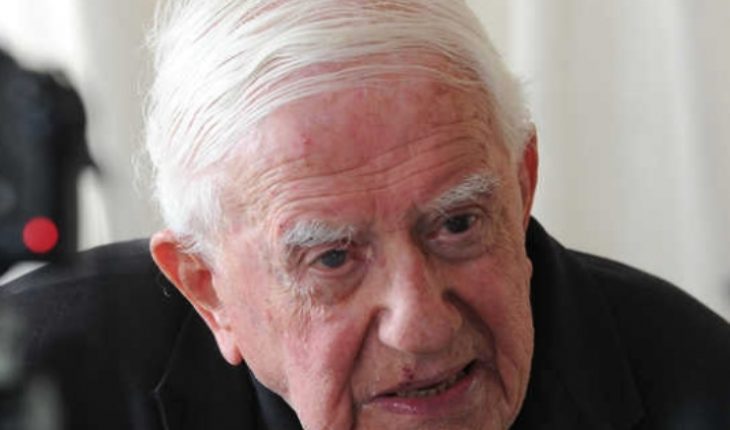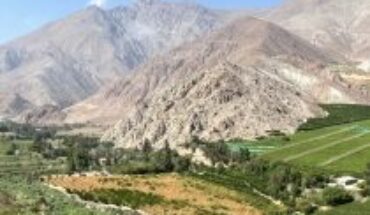Surprising sounded the words with which Sebastian Piñera defended his uncle Bernardino, the longest-lived bishop of the “I find it hard to believe a complaint that is more than 50 years ago after any events have occurred.” Surprising, because our president erased with his elbow what he had announced when signing with drums and cymbals, next to a canvas that proclaimed “TIME IS NOT EXCUSA”, the law that declares sexual offences against minors imprescriptible, making them punishable by no time limit. Surprising, because the complaint of a victim accusing Bishop Piñera of an ancient sexual abuse adds to more than 160 similar allegations against Catholic priests in Chile, both living and dead, that have proved truthful. Did Sebastian Piñera speak as the bishop’s nephew? As President of Chileans, including victims of priestly abuse?
A ruler’s relationship with his relatives is fraught with suspicion. Piñera himself was able to verify it when he wanted to send his brother Pablo as ambassador to Buenos Aires, an attempt thwarted by the accusation of “nepotism” that flooded the networks, the morning ones, the media covers. Things get complicated when it comes to children, and if not, remember the trip to China of Cristóbal and Sebastián Piñera Morel, young entrepreneurs who had privileged access to certain meetings related to their interests.
In France, President Francois Mitterrand had the bad idea of appointing his son Jean-Christophe, former press correspondent in Africa, as a councillor for his government for relations with that continent. In the exercise of his office, Jean-Christophe was involved in the angolagate, a scandal of coimas and commissions over the sale of arms to Angola, which cost him a two-year sentence of sent. Asked about the matter, Mitterrand refused to defend him and snifled with an answer that will remain in the annals of history: “The President of France has no children.”
The one who reluctantly accepted that he had a son was Stalin, when his firstborn, Jakov, a red army lieutenant, was imprisoned by the Germans at the Battle of Smolensk. When he found out, Hitler wanted to exchange it for Marshal Von Paulus, a prisoner in the Soviet Union. In reality, Hitler wanted to recover his marshal not to honor him, but to execute him as a traitor for having surrendered in the battle of Stalingrad. Symmetrically, Soviet soldiers seized by the enemy, such as Jakov, were considered cowards and received upon their return as traitors. At Hitler’s request, Stalin responded with the famous phrase: “I do not deliver a marshal in exchange for a lieutenant.” Jakov was machine-gunned by the German guards against the fence of a concentration camp. Von Paulus, once released, preferred to stay in the Soviet Union and then in the German Democratic Republic, communist Germany.
The other side of the medal of family relations with power is on the sinister list of parricide dwelled sons who hastened the death of a king, queen, emperor or empress, and fratricidal princes, such as the biblical Abimelec , king of Israel, who overtly overtly overturned his brethren to take over the staff. A few years ago, Prince Dipendra of Nepal shot thirteen members of his family, including his father and mother, with an automatic rifle. As heir to the throne, the massacrer Dipendra was proclaimed king while in a coma after shooting himself in the head. His reign lasted three days, during which he was always unconscious, until he died of his wounds.
There is also the creepy list of the filicid monarchs, who attack their own children, illustrated by the famous canvas of Ilia Repin that paints a Tsar Ivan the Terrible of a disjointed face with his son Ivan Ivanovich, whom he has just killed of a bastocious , bleeding in his arms. A century and a half later, Tsar Peter the Great, Russia’s modernizer, will torture his son Alexi Petrovh to death, accusing him of conspiring to snatch the throne.
Special mention deserves Irene, Empress of Byzantium – Saint Irene for the Orthodox Church – that in the Porphyry Chamber, the Scarlet Room in which she had brought him into the world 26 years earlier, he blinded his son Constantine VI through the Byzantine method of “enucleation”, which consisted of emptying the condemned’s eyeballs.
Returning to Chilean nepotism, we flew to the second presidency of General Carlos Ibáñez del Campo, elected in 1952 by an overwhelming majority under the slogan “Ibáñez to power, the broom to sweep”. It was about sweeping away the alleged corruption of the radical party governments, but under the presidency of Ibanez corruption and nepotism gained new verve. It was not his blood relatives, but those of his wife, Graciela Letelier, who handled the levers of the Superintendency of Supply and Prices, the “premiums” of foreign trade and other mechanisms in favor of entrepreneurs who duly rewarded services. By the end of his term, his brother-in-law’s wealth had multiplied and Ibáñez’s popularity was in the ground.
But the Chilean record of scoundrel and nepotism will be beaten by the “liberator” Augusto Pinochet, starting with the gift of the state-owned Soquimich, the saltpeter miner, to his father-in-law Julio Ponce Leroux. In addition, to Cema Chile, a foundation run until last year by Lucía Hiriart, of 250 tax properties, as well as a series of murky operations in Chilean pesos and dollars that have earned Pinochet’s widow a misappropriation of funds and e undue nuriquetion.
The most famous case in which Nepotism bent its hand to the State was that of the “pinocheques”, during the democratic transition in which Pinochet was still in command in chief of the Army. Retired officer Augusto Pinochet Hiriart, son of the dictator, turned entrepreneur, was embroiled in a scandal of negotiating, offshore accounts and a suspicious bankruptcy, from which he was saved by his father who on behalf of the Army bought him the company in bankruptcies with three checks worth three million dollars: the “pinocheques”… When the State Defense Council, courts and press uncover the fraud, Pinochet responded with a troop quartering and then with the famous “beret” of soldiers in combat and with a military “picnic.” Under pressure, President Eduardo Frei Ruiz-Tagle ordered the final closure of the court case that was about to be ruled by the Supreme Court. The undefeated Chilean Army had won a new battle. Later the secret accounts opened by the dictator with quaint pseudonyms for $21 million badly held at Riggs Bank in Washington.
To close this column you cannot miss the Caval case. First female and non-partner president, Michelle Bachelet named her son Sebastian Dávalos in the position she traditionally held in La Moneda the “First Lady”. Controversies surrounding the business of her son and daughter-in-law deeply damaged his government, but the president kept his quiet discreet and never publicly condened or reneged on him, letting justice do and continue to do his job. Unlike Mitterrand, the president of Chile did have a son. What happened did not overshadow its international prestige.
The content poured into this opinion column is the sole responsibility of its author, and does not necessarily reflect the editorial line or position of El Mostrador.





